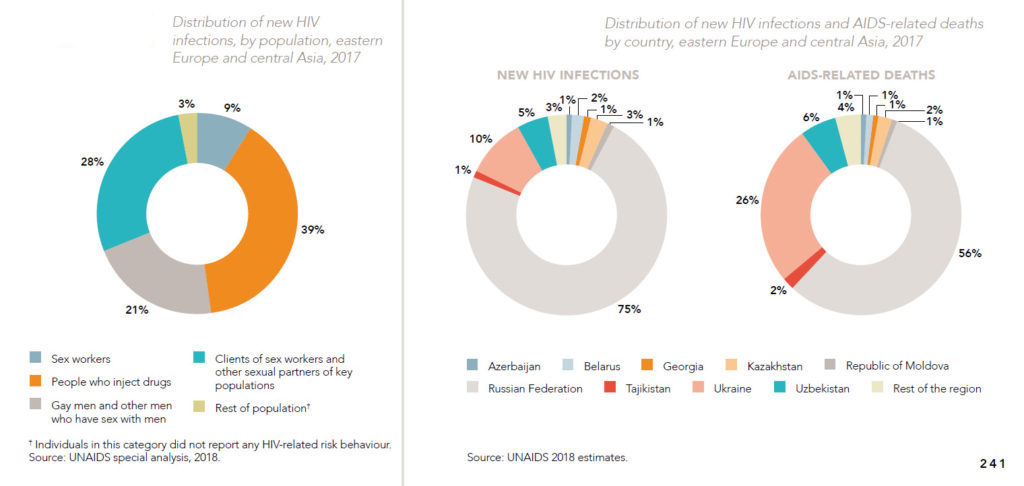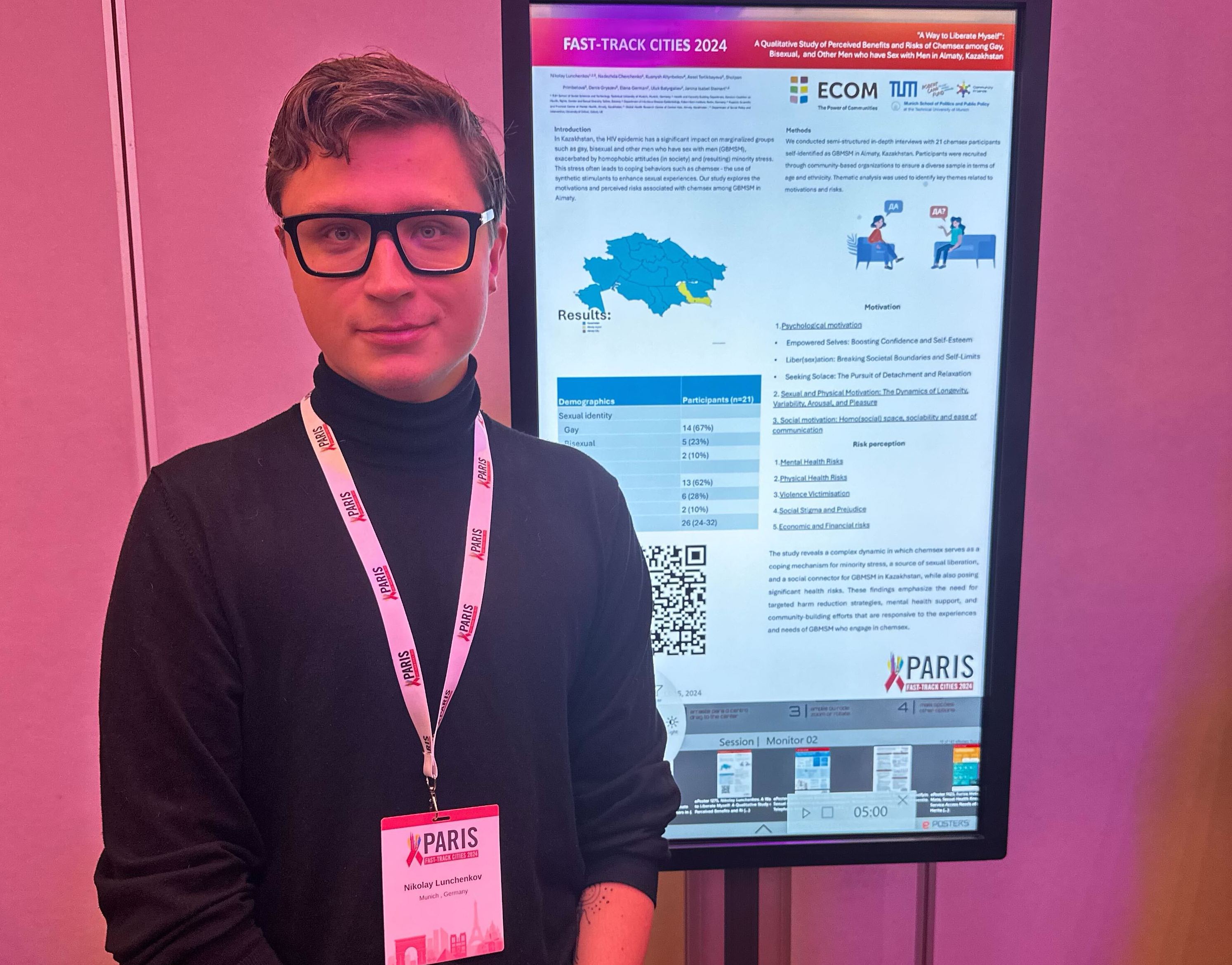 On July 18, the Joint United Nations Program on HIV/AIDS (UNAIDS) presented a new report on the global HIV epidemic.
On July 18, the Joint United Nations Program on HIV/AIDS (UNAIDS) presented a new report on the global HIV epidemic.The report notes that despite significant successes in reducing the HIV prevalence around the world, these are insufficient to achieve global goals of 90-90-90.
The report shows that while the HIV response in Eastern and Southern Africa has moved well ahead and the number of new HIV cases there declined by almost a third in seven years, the HIV epidemic continues to rapidly grow in Eastern Europe and Central Asia (EECA). In this region, the number of new HIV cases has doubled over the past year.
520,000 people in EECA, or only 36% of estimated number of PLHIV, had access to ART in 2017. Viral suppression was reached in 26% of PLHIV.
The report emphasizes that Russia, where 70% of HIV-positive people in EECA live, has a decisive influence on the "regional trend".
A case for concern is the situation with HIV among gays, bisexuals, and other men who have sex with men (MSM) and trans people. Recent UNAIDS data indicate that it continues to expand in the EECA region as well as in the rest of the world.
According to the report, MSM account for 18% of all new HIV cases around the world, while in the EECA region this figure is 21%.
The data from the UNAIDS report confirms the information collected in ECOM’s epidemiological survey "HIV among MSM in Eastern Europe and Central Asia", which says that the HIV prevalence among MSM in EECA continues to increase and has already reached the level of a concentrated epidemic in most countries of the region.






Комментарии
Пока никто не оставил комментарий